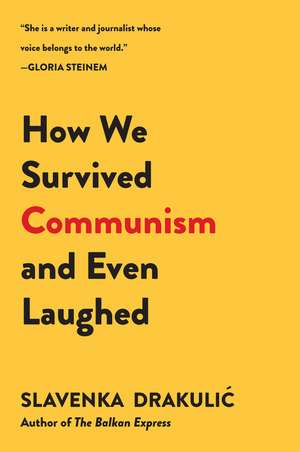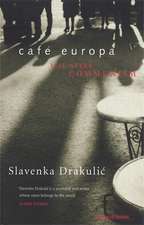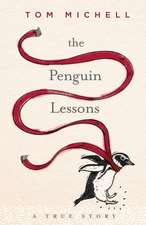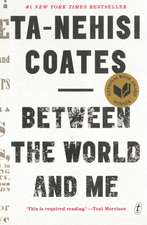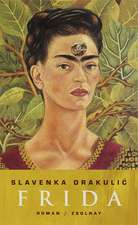How We Survived Communism & Even Laughed
Autor Slavenka Drakulicen Limba Engleză Paperback – 6 iun 2016
This essay collection from renowned journalist and novelist Slavenka Drakulic, which quickly became a modern (and feminist) classic, draws back the Iron Curtain for a glimpse at the lives of Eastern European women under Communist regimes. Provocative, witty, and intensely personal, How We Survived Communism and Even Laughed cracks open a paradoxical world that through its rejection of capitalism and commoditization ends up fetishizing both.
Examining the relationship between material goods and expressions of happiness and individuality in a society where even bananas were an alien luxury, Drakulic homes in on the eradication of female identity, drawing on her own experiences as well as broader cultural observations. Enforced communal housing that allowed for little privacy, the banishment of many time-saving devices, and a focus on manual labor left no room for such bourgeois affectations as cosmetics or clothes, but Drakulic’s remarkable exploration of the reality behind the rhetoric reveals that women still went to desperate lengths to feel “feminine.”
How We Survived Communism and Even Laughed also chronicles the lingering consequences of such regimes. The Berlin Wall may have fallen, but Drakulic’s power pieces testify that ideology cannot be dismantled so quickly; a lifetime lived in fear cannot be so easily forgotten.
Preț: 88.40 lei
Nou
Puncte Express: 133
Preț estimativ în valută:
16.92€ • 18.39$ • 14.22£
16.92€ • 18.39$ • 14.22£
Carte disponibilă
Livrare economică 31 martie-14 aprilie
Livrare express 14-20 martie pentru 42.09 lei
Preluare comenzi: 021 569.72.76
Specificații
ISBN-13: 9780060975401
ISBN-10: 0060975407
Pagini: 224
Dimensiuni: 135 x 203 x 13 mm
Greutate: 0.17 kg
Ediția:Harperperennial.
Editura: HarperCollins Publishers
Colecția HarperPerennial
ISBN-10: 0060975407
Pagini: 224
Dimensiuni: 135 x 203 x 13 mm
Greutate: 0.17 kg
Ediția:Harperperennial.
Editura: HarperCollins Publishers
Colecția HarperPerennial
Textul de pe ultima copertă
This essay collection from renowned journalist and novelist Slavenka Drakulic, which quickly became a modern (and feminist) classic, draws back the Iron Curtain for a glimpse at the lives of Eastern European women under Communist regimes. Provocative, often witty, and always intensely personal, How We Survived Communism and Even Laughed cracks open a paradoxical world that through its rejection of capitalism and commoditization ends up fetishizing both.
Examining the relationship between material goods and expressions of happiness and individuality in a society where even bananas were an alien luxury, Drakulic homes in on the eradication of female identity, drawing on her own experiences as well as broader cultural observations. Enforced communal housing that allowed for little privacy, the banishment of many time-saving devices, and a focus on manual labor left no room for such bourgeois affectations as cosmetics or clothes, but Drakulic’s remarkable exploration of the reality behind the rhetoric reveals that women still went to desperate lengths to feel “feminine.”
How We Survived Communism and Even Laughed also chronicles the lingering consequences of such regimes. The Berlin Wall may have fallen, but Drakulic’s power pieces testify that ideology cannot be dismantled so quickly; a lifetime lived in fear cannot be so easily forgotten.
Examining the relationship between material goods and expressions of happiness and individuality in a society where even bananas were an alien luxury, Drakulic homes in on the eradication of female identity, drawing on her own experiences as well as broader cultural observations. Enforced communal housing that allowed for little privacy, the banishment of many time-saving devices, and a focus on manual labor left no room for such bourgeois affectations as cosmetics or clothes, but Drakulic’s remarkable exploration of the reality behind the rhetoric reveals that women still went to desperate lengths to feel “feminine.”
How We Survived Communism and Even Laughed also chronicles the lingering consequences of such regimes. The Berlin Wall may have fallen, but Drakulic’s power pieces testify that ideology cannot be dismantled so quickly; a lifetime lived in fear cannot be so easily forgotten.
Recenzii
“She is a writer and journalist whose voice belongs to the world.” — Gloria Steinem
“A thoughtful, beautifully written collection of essays...blending provocative analysis with the texture of everyday life.” — New York Times Book Review
“An invaluable account of the cumulative weariness of the soul brought on by daily life in an Eastern European country.” — Vivian Gornick, critic and essayist (National Book Award finalist)
“Seldom has such a narrative been so spirited and immediate.” — Christopher Hitchens
“Not only the first ever grassroots feminist critique of communism, it’s one of our first glimpses into real peoples’ lives in pre–revolutionary Eastern Europe. My world is twice as large as it was before I read this book.… [Drakulic] is a brave, funny, wise and wonderfully gifted writer.” — New York Times bestselling author Barbara Ehrenreich
“A thoughtful, beautifully written collection of essays...blending provocative analysis with the texture of everyday life.” — New York Times Book Review
“An invaluable account of the cumulative weariness of the soul brought on by daily life in an Eastern European country.” — Vivian Gornick, critic and essayist (National Book Award finalist)
“Seldom has such a narrative been so spirited and immediate.” — Christopher Hitchens
“Not only the first ever grassroots feminist critique of communism, it’s one of our first glimpses into real peoples’ lives in pre–revolutionary Eastern Europe. My world is twice as large as it was before I read this book.… [Drakulic] is a brave, funny, wise and wonderfully gifted writer.” — New York Times bestselling author Barbara Ehrenreich
Notă biografică
Slavenka Drakulic, born in Croatia (former Yugoslavia) in 1949, is the author of five novels and five nonfiction books. She is a contributing editor to The Nation and her essays have appeared in The New Republic, the New York Times Magazine, and the New York Review of Books.
